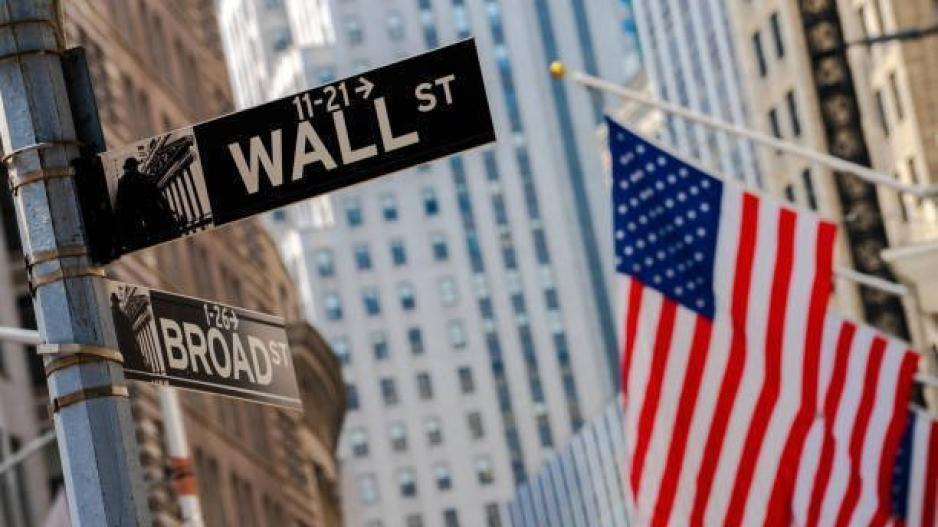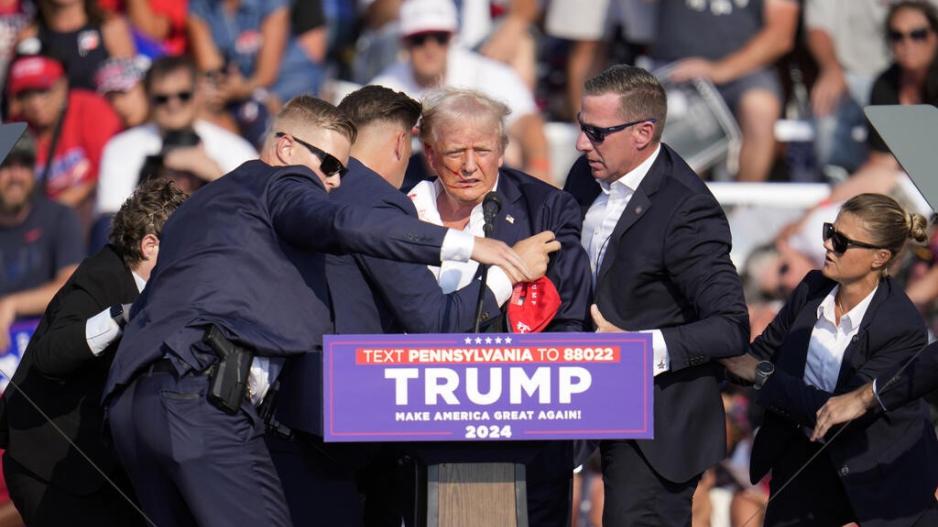Trump Assassination Attempt Stirs Wall Street Amid Strategic Dilemma
Market Analysts Weigh Impact of Trump's Resurgence on Investment Strategies
If the assassination attempt on Donald Trump hadn't occurred, investors on Wall Street would have faced a strategic dilemma in the coming week. They would need to decide whether to stay invested in the leading Technology giants, which have driven returns for over a year, or to shift towards less popular market sectors that could benefit from a relaxed monetary policy.
However, the situation in Pennsylvania has changed the dynamics. Market analysts believe the former U.S. president has emerged almost unscathed and now holds a significant lead in the presidential race.
Betting markets now give Trump a 70% chance of becoming the next U.S. president. Khoon Goh, Head of Asia Research at ANZ, is uncertain about the market's reaction but estimates that "the Bitcoin rally could be due to concerns over more civil unrest. We will likely see some risk-off moves at the market open, but they should fade quickly." The popular cryptocurrency rose as much as 2.7% to $60,160.71 following the assassination attempt, sparking speculation that Trump's chances of winning the presidency have increased.
"I believe it likely increases his chances, and we may see flows into safe-haven assets in the morning," explained Nick Twidale, Chief Market Analyst at ATFX GLOBAL in Sydney, to Bloomberg. "I think gold could test all-time highs, and we’ll see positions in the yen and dollar, as well as flows into government bonds."
"The shooting is likely to bolster support for Trump and further strengthen the positive momentum he enjoyed after the debate with Joe Biden two weeks ago," noted Rong Ren Goh, Portfolio Manager at Eastspring Investments in Singapore, to Reuters. "The market reaction to a potential Trump presidency was characterized by a stronger U.S. dollar and a steepening U.S. Treasury yield curve. We might see something similar next week if his election prospects are perceived to have improved further after this incident."

The U.S. has few comparable incidents in its history. When President Ronald Reagan was shot four decades ago, the stock market plunged before closing early. The next day, March 31, 1981, the S&P 500 rose by over 1%, and the yields on 10-year benchmark government bonds fell by nine basis points to 13.13%, according to Bloomberg data.
"From memory, Reagan jumped 22 points in the polls after his assassination attempt," Nick Ferris, Head of Investment at Vantage Point Asset Management in Singapore, told Reuters. "Trump has always been more of a 'market supporter.' The main issue we're considering is whether fiscal policy remains irresponsibly loose and the implications that could have for (renewed) inflation and the future path of interest rates."
In a potential new Trump presidency, market analysts expect a more aggressive trade policy, fewer regulations, and looser climate change rules. Investors also anticipate an extension of corporate and personal tax cuts expiring next year, fueling concerns over increasing fiscal deficits.
In a February interview, Trump said he would not reappoint Federal Reserve Chairman Jerome Powell, whose second four-year term ends in 2026.

Long-term bond yields have risen alongside the chances of a second Trump administration. While movements in the still-inverted Treasury curve are mainly due to changing expectations for the Fed’s first rate cut in this cycle, the gap between 2-year and 30-year bonds has narrowed to negative six basis points from negative 30 basis points when the Biden-Trump debate occurred.
The narrower difference between 2-year and 10-year bond yields stands at negative 27 basis points, half the levels of three weeks ago.
Bond investors should pay close attention, as the attack is likely to boost Trump's election chances, according to Marco Pappic, Chief Strategist at BCA Research Inc. in California. "I think the bond market at some point has to realize the higher probability of President Trump winning the White House over any of his opponents," Pappic wrote. "And I continue to believe that as his chances increase, so should the likelihood of a bond market 'rebellion.'"
Assets associated with the so-called Trump trade include the dollar, bonds, private prison stocks, credit card companies, and health insurance firms. Investors see the Republican's policies on tariffs, immigration, and deficits leading to a stronger dollar, higher bond yields, and a more favorable environment for these stock sectors.
Beyond the focus on Trump's assassination attempt and Trump trade investments, Wall Street has been undergoing a shift. The tech-heavy Nasdaq 100 recorded its biggest drop of the year on Thursday, while the small-cap Russell 2000 had its best day of 2024. The Nasdaq 100 has gained about 21% this year, while the Russell 2000 is up just 6%.
Small-cap companies and the equal-weighted S&P 500 extended their gains on Friday, even as technology stocks rebounded.
Investors warned that the moves could be a sharp reversal, as the performance gap between tech and other market sectors has reached extremes. Additionally, recent periods of market broadening have been short-lived: for example, small-caps surged in late 2023 when investors believed rate cuts were imminent, only to be delayed in the following months.






